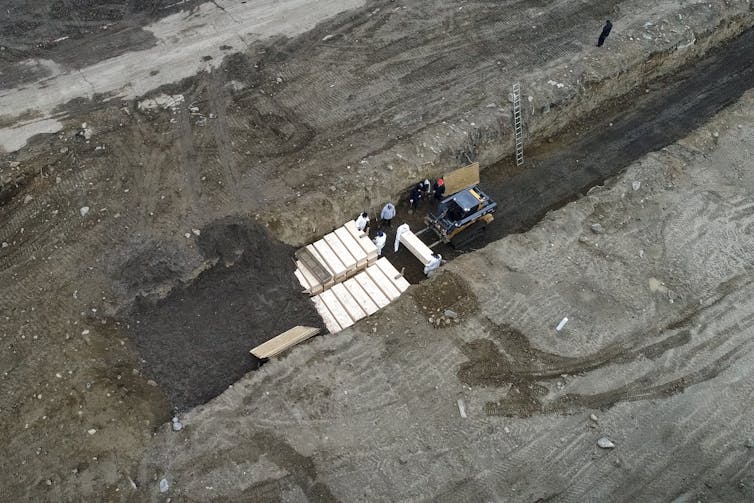Vital Signs: 4 things Australia's COVID response got right
- Written by Richard Holden, Professor of Economics, UNSW
2020 began simply, if dramatically enough in some sense.
We spent the first months preoccupied with bushfires that blackened both our natural environment and our international reputation for taking climate change seriously. Who would have thought that would have been the easy part?
Then came a global pandemic, the largest public health emergency and greatest economic contraction in a century.
Australia has emerged as the nation that may have dealt with these twin crises the best. But it was not obvious we would do so — certainly not in February 2020.
It is important to scrutinise the reasons for our success. In particular, what parts are due to good policy, and what parts to luck?
Tentative beginnings
Australia’s initial response to COVID-19 was less certain than, for example, New Zealand’s. In debates about shutting schools, for example there was always a pull to the policy with the least economic impact.
While most economists have supported putting public health policy first, not all in academia, government or the media have agreed. There has been much talk about “the Swedish model”, achieving “herd immunity” naturally, and that the costs of lockdowns far outweigh their benefits.
On March 10, I declared the opposite, in article published by the Australian Financial Review. Rather, I wrote, “the economic costs of being reactive are likely to be much larger than the costs of being decisive”.
Read more: Vital Signs: the COVID-19 crisis in aged care shows elimination is the only effective strategy
At the time the article was published there were 93 cases of COVID-19 in Australia and three deaths. It was the week Prime Minister Scott Morrison declared he would attend a rugby league match just moments after outlining the government’s advice to ban large crowd gatherings. Our borders were still gapingly open.
I said in that piece “one doesn’t need to be an epidemiologist to understand the logic of exponential growth”.
We got our dose of exponential growth, with cases and deaths, respectively, growing quickly. Our leaders got the message and acted decisively. Morrison even gave up on his beloved Sharks games.
Read more: Vital Signs: the cost of lockdowns is nowhere near as big as we have been told
4 keys to Australia’s COVID success
With relatively swift action, we got four crucial things in place:
we lowered the base rate of infections
we got a serious testing regimen in place
we developed effective contact tracing
we built hospital capacity if things went awry.
These are the facts of the case, and they are undisputed.
The places that didn’t do these things used Olympic ice rings as morgues (Spain) and dug temporary graves in parks (New York). We did better. We would not have done better had we listened to the naysayers.
 Bodies of people who died with COVID-19 are buried in a trench on Hart Island, in the Bronx borough of New York, on April 9 2020.
John Minchillo/AP
Bodies of people who died with COVID-19 are buried in a trench on Hart Island, in the Bronx borough of New York, on April 9 2020.
John Minchillo/AP
The year evolved. And so did we. And so did our national debate.
Victoria made a colossal mistake, for which there still needs to be a proper accounting. But if we have learned nothing else from 2020, it is that expertise and informed public debate are essential for good policy.
Read more: Vital Signs: Victoria's privatised quarantine arrangements were destined to fail
Top marks for a work in progress
Australia’s economic response has been world-class.
Fiscal support measures such as JobSeeker and JobKeeper were crucial to a public health recovery leading to economic recovery.
But the job is not done.
Sure, the JobSeeker benefits need to taper down over time. But the questions are how much and how fast.
Wage subsidies can’t go on forever, but when to end them without destroying businesses small and large, and jobs along with them?
These will be be the hard questions for Treasurer Josh Frydenberg and the rest of the Morrison government in 2021.
In 2020, nonetheless, it has – through a great measure of skill and some measure of luck – helped avoid a COVID catastrophe in Australia.
Let us hope Scott Morrison deals with the everyday as well as he has dealt with the exceptional.
Authors: Richard Holden, Professor of Economics, UNSW
Read more https://theconversation.com/vital-signs-4-things-australias-covid-response-got-right-152172




